ASEAN (150 found)
PERSECUTION OF THE ROHINGYA MUSLIMS: Is Genocide Occurring in Myanmar’s Rakhine State?
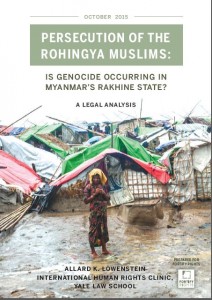 This legal analysis considers whether the ongoing attacks on and persecution of the Rohingya Muslim population in Myanmar constitute genocide, as defined by the 1948 Convention on the Prevention and Punishment of the Crime of Genocide (the Genocide Convention) […]
This legal analysis considers whether the ongoing attacks on and persecution of the Rohingya Muslim population in Myanmar constitute genocide, as defined by the 1948 Convention on the Prevention and Punishment of the Crime of Genocide (the Genocide Convention) […]
COUNTDOWN TO ANNIHILATION: GENOCIDE IN MYANMAR
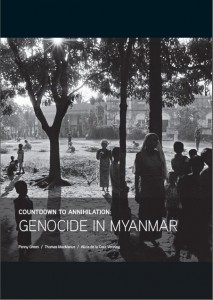 The Rohingya face the final stages of genocide. Decades of persecution have taken on a new and intensified form since mass killings in 2012. The marked escalation in State-sponsored stigmatisation, discrimination, violence and segregation, and the systematic weakening of the community, make precarious the very existence of the Rohingya […]
The Rohingya face the final stages of genocide. Decades of persecution have taken on a new and intensified form since mass killings in 2012. The marked escalation in State-sponsored stigmatisation, discrimination, violence and segregation, and the systematic weakening of the community, make precarious the very existence of the Rohingya […]
Myanmar: Freedom on the Net 2015
Internet freedom in Myanmar declined during the coverage period of this report in comparison with the progress made since the country undertook liberalization in 2011. 1 The government and security forces stepped up intimidation of internet users during social protests, intensifying conflict in ethnic minority regions, and during preparation for the 2015 national elections […]
• • •Promotion and protection of human rights, Situation of human rights in Myanmar
The Secretary-General has the honour to present to the members of the General Assembly the report on the situation of human rights in Myanmar submitted by the Special Rapporteur on the situation of human rights in Myanmar, Yanghee Lee, in accordance with General Assembly resolution 69/248 […]
• • •Comparing States’ treatment of businesses and associations worldwide
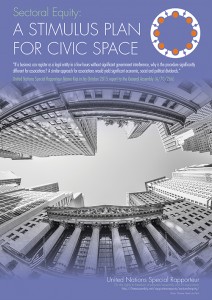 In this report, Maina Kiai’s third to the United Nations General Assembly, the Special Rapporteur compares the enabling environments that States, multilateral organizations and other actors create for businesses and associations, and highlights instances where they are treated inequitably.
In this report, Maina Kiai’s third to the United Nations General Assembly, the Special Rapporteur compares the enabling environments that States, multilateral organizations and other actors create for businesses and associations, and highlights instances where they are treated inequitably.
Submission to the United Nations Universal Periodic Review on Refugees and Displaced Persons Burma/Myanmar
1. This submission focuses on Burma’s compliance with international human rights obligations in relation to Burma’s refugees and displaced persons safe, dignified and voluntary return. It draws on interviews conducted with a mixture of semi-structured individual interviews and focus groups with refugees from Mae La, Umpiem Mai, Ban Nai Soi, and Mae Ra Ma Luang refugee camps including women, youth and religious minority groups, Mon, Karenni, and Karen civil society groups, ethnic armed groups (EAGs), refugee committees, and international non-governmental organizations […]
• • •JADE: Myanmar’s “Big State Secret”
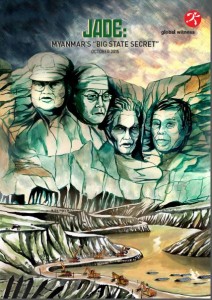 Since 2011, Myanmar’s rebranded government has told the world it is transitioning from a pariah state run by a ruthless military dictatorship to a civilian regime committed to wholesale political and economic reforms […]
Since 2011, Myanmar’s rebranded government has told the world it is transitioning from a pariah state run by a ruthless military dictatorship to a civilian regime committed to wholesale political and economic reforms […]
Myanmar: National report submitted in accordance with paragraph 5 of the annex to Human Rights Council resolution 16/21
1. During the First Cycle of UPR, the promotion and protection of human rights in Myanmar was reviewed on 27 January 2011 at the meeting of the Working Group on UPR […]
• • •Report on Repressive Laws in Burma
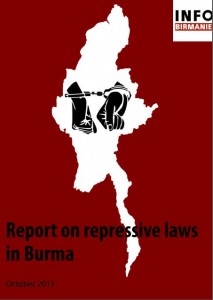 In spite of the reforms in Burma in recent years, the process of democratization has been called into question by the persistence of grave human rights violations and the absence of any significant progress on genuine democractic reforms, notably with regard to the process of legal reform […]
In spite of the reforms in Burma in recent years, the process of democratization has been called into question by the persistence of grave human rights violations and the absence of any significant progress on genuine democractic reforms, notably with regard to the process of legal reform […]
Disenfranchisement and Desperation in Myanmar’s Rakhine State: Drivers of a Regional Crisis
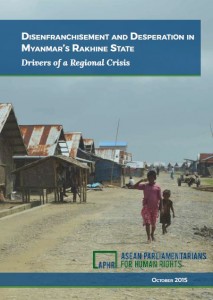 Political exclusion is exacerbating the already intense sense of desperation among Rohingya Muslims in Myanmar’s Rakhine State, and driving a regional crisis that ASEAN leaders are ill prepared to confront. Unless serious steps are taken to address the situation of deprivation and despair in Rakhine State, many Rohingya will have no other option but to flee in search of asylum elsewhere […]
Political exclusion is exacerbating the already intense sense of desperation among Rohingya Muslims in Myanmar’s Rakhine State, and driving a regional crisis that ASEAN leaders are ill prepared to confront. Unless serious steps are taken to address the situation of deprivation and despair in Rakhine State, many Rohingya will have no other option but to flee in search of asylum elsewhere […]

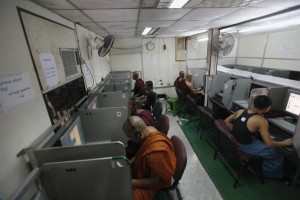
 All posts
All posts